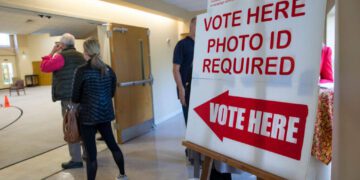Illinois has participated in public (government-run) lotteries for decades, and it has caused us to think about statistics in a different way. No matter whether you're talking about a good thing (like getting a big payout due to randomly-generated numbered balls in a box) or a bad thing (like getting a potentially lethal dose of a nasty virus), it's still all about understanding the odds.
How do we, in our daily lives, manage these choices, as reported statistics change? How does government respond to such numbers, and how should it? Should public officials be dispassionate in analyzing such data, and can they be, when after all, even public officials are human too, after all (most of the time, anyway)?
John F. Di Leo of Illinois Review explores the question in the American Thinker HERE:







